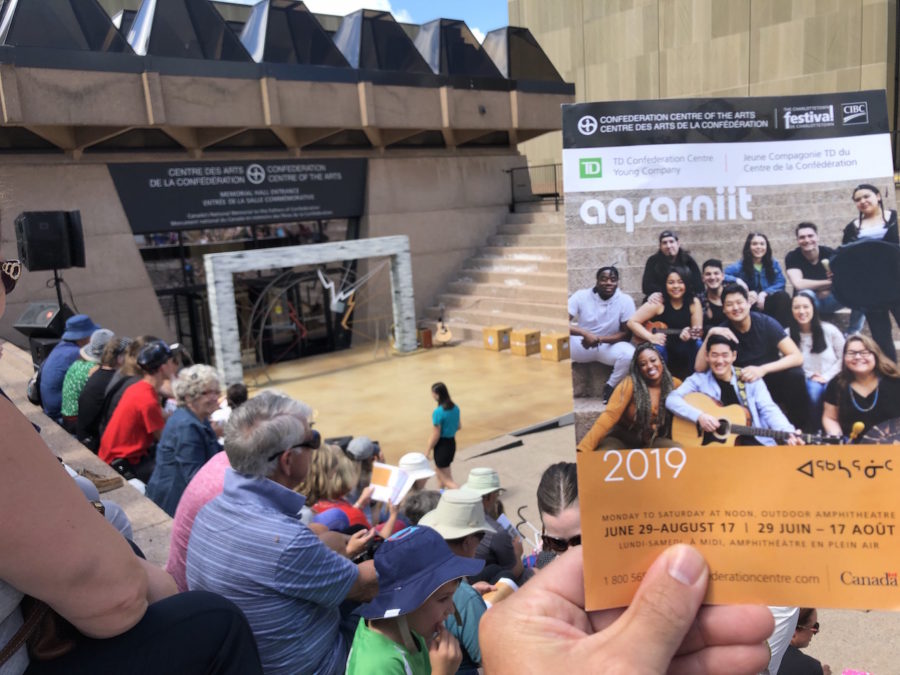We had the wonderful opportunity to attend a free show put on by a young group of very talented, diverse, Canadians. The show was part of a festival, and was performed in an open amphitheater, in downtown Charlottetown.  We didn’t know much about it going in, but I can say that it was a very powerful message illustrating both Canadian pride and asking tough questions about our country’s history with the native people to this land. The fact that it was put on adjacent to the Province House, where confederation was signed in 1867, made it even more powerful.
We didn’t know much about it going in, but I can say that it was a very powerful message illustrating both Canadian pride and asking tough questions about our country’s history with the native people to this land. The fact that it was put on adjacent to the Province House, where confederation was signed in 1867, made it even more powerful.  The performance was filled with facts about our history, and some hard truths about the treatment of people who had been living here for many, many hundreds of years before “discovery.” Several times during the show, when the concept of “discovering” America came up, it was simultaneously referred to as “invasion”. The invasion of America in the 1500’s saw thousands of years of rich history being altered quickly, and a future of marginalization, which is rarely mentioned. Why don’t we talk about it? It’s uncomfortable? Not convenient? Because it is “so far in the past?”
The performance was filled with facts about our history, and some hard truths about the treatment of people who had been living here for many, many hundreds of years before “discovery.” Several times during the show, when the concept of “discovering” America came up, it was simultaneously referred to as “invasion”. The invasion of America in the 1500’s saw thousands of years of rich history being altered quickly, and a future of marginalization, which is rarely mentioned. Why don’t we talk about it? It’s uncomfortable? Not convenient? Because it is “so far in the past?”
This group did a sensational job of addressing very difficult facts from our history, while keeping the message of hope positive for the future of this great nation. Coincidentally, we listened to a podcast in the car earlier on this trip, about residential schools in Canada. Finley and Grace had a hard time believing that people would be treated this way, and this performance really brought it back to asking viewers to think about ‘now what?’ When Cartier ‘invaded’ great Turtle Island (The name for today’s Canada) in what we now call Newfoundland, there were over 50 languages spoken, economic systems in place, and a thriving culture across this land. In fact the name Canada came from the native word Kanata, meaning village.  What was to follow regarding the in-humane treatment of these people, makes me ashamed but also makes me proud to know that many are working towards re-writing our history moving forward. I did not know that Apartheid in South Africa was modeled after the Indian act of 1876 in Canada. It is hard to believe that we don’t talk about it in the same way, in order ensure these types of atrocities are not repeated. Inuit youth are 11 times above the national average for suicide rates and it is no wonder why this is the case.
What was to follow regarding the in-humane treatment of these people, makes me ashamed but also makes me proud to know that many are working towards re-writing our history moving forward. I did not know that Apartheid in South Africa was modeled after the Indian act of 1876 in Canada. It is hard to believe that we don’t talk about it in the same way, in order ensure these types of atrocities are not repeated. Inuit youth are 11 times above the national average for suicide rates and it is no wonder why this is the case.
A few days later as we toured FDR’s summer cottage in Canada, they spoke about the history of relations between Native North Americans, and the 21 very rich families who populated Campobello Island.  I think some details were missing on the part of the Passamaquoddy tribe…FDR’s relationship as a 10 year old with Tomah Joseph did help relations in the future, but the US also has a long way to go, like Canada.
I think some details were missing on the part of the Passamaquoddy tribe…FDR’s relationship as a 10 year old with Tomah Joseph did help relations in the future, but the US also has a long way to go, like Canada.
It made me very proud to be from a country that would ask these questions, share these hard truths, and look forward to an even brighter future for all Canadians. They shared some facts we can be proud of, in addition to information that amused the kids – that items like peanut butter, the telephone, basketball, and Hawaiian pizza were invented by Canadians. Canadians are known for saying sorry, are notorious for being polite, and can be recognized by our “out’s” and “about’s”, which are traits we are proud of.
How does a country heal from a history such as this? How can things be made right? How can we educate future generations to know the whole history, and make this country even better by facing these difficult facts? Would love to hear your stories and ideas.


